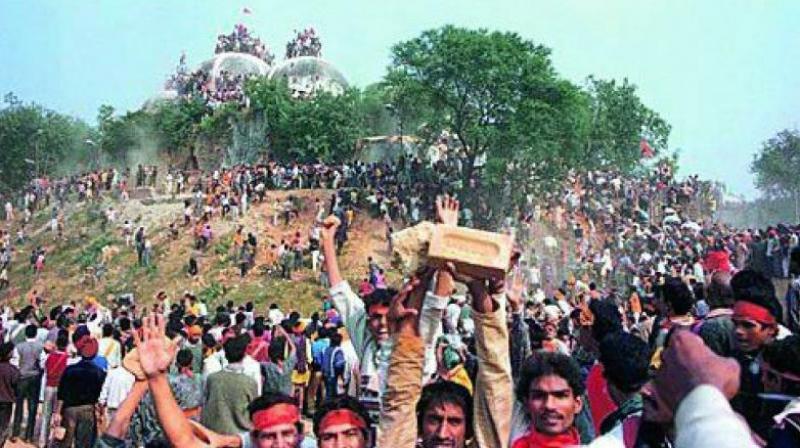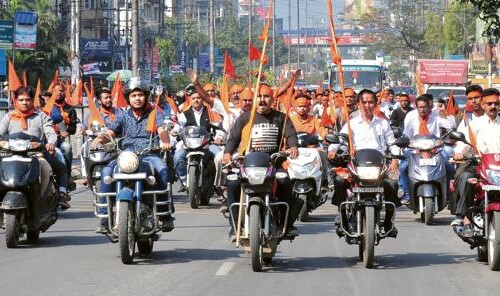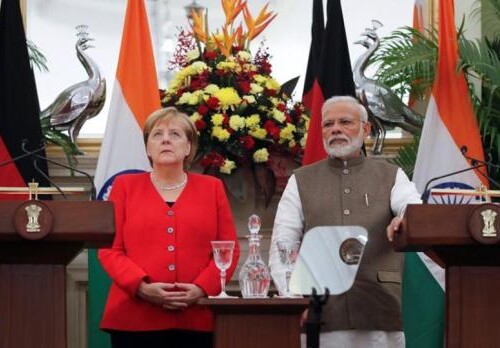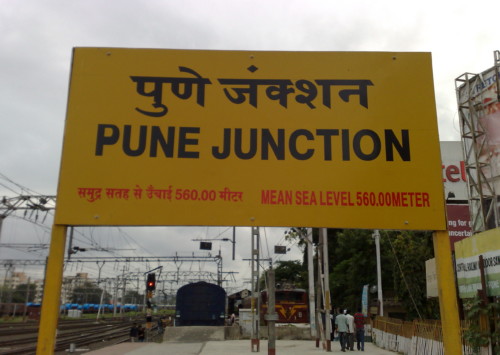Ram temple dispute: a timeline
On November 9, the five-member Constitution bench led by the chief justice of India Ranjan Gogoi cleared the way for the construction of a Ram temple at the disputed site at Ayodhya.
1528: A mosque is built by Mir Baqi-one of the commanders of Babur in Ayodhya. It is named after the Mughal emperor.
1885: Mahant Raghubir Das files a plea in Faizabad district court seeking permission to build a canopy outside the disputed Ram Janmabhoomi (birthplace of Rama)-Babri Masjid structure. The court rejects the plea.
1949: Idols of Ram Lalla (Rama as an infant) placed under a central dome outside the disputed structure.
1950: Gopal Simla Visharad files suit in Faizabad district court, Uttar Pradesh for rights to worship the idols of Ram Lalla.
1950: Paramahansa Ramachandra Das- head of Digambar Akhara that is a congregation of Naga sadhus (ascetics) files suit for continuation of worship and keeping the idols.
1959: Nirmohi Akhara files suit seeking possession of the site.
1961: UP Sunni Central Waqf Board files a suit for possession of the site.
1981: UP Sunni Central Waqf Board files suit for possession of the site.
February 1, 1986: Local court orders the government to open the site for Hindu worshippers.
August 14, 1989: Allahabad High Court ordered maintenance of status quo in respect of the disputed structure.
1990:The Bharatiya Janata Party (BJP) president Lal Krishna Advani takes out a rathyatra (chariot procession) to gather support for building the Ram temple. He is arrested in Bihar on October 23. On October 30, several karsevaks (volunteers for religious cause) are killed in police firing when they gather near the disputed site as part of the rathyatra.
December 6, 1992: Ram Janmabhoomi-Babri Masjid structure demolished.
1993: The Centre takes over the 67 acres of land around the area through the Acquisition of Certain Area at Ayodhya Act. A number of writ petitions, including one by Ismail Faruqui, are filed at Allahabad High Court challenging the court order.
1994: Supreme Court delivers its verdict in Faruqui case, says mosque not integral to Islam.
2002: Allahabad High Court begins hearing on who owns the land at the disputed site.
2010: Allahabad High Court gives its verdict. It trifurcates the disputed area among the Sunni Waqf Board, the Nirmohi Akhara and Ram Lalla (the deity represented as a party to the case).
2011: Supreme Court stays the high court verdict after all three parties challenge it.
February 8, 2018: Supreme Court starts hearing the civil appeals.
September 27: A three-judge bench delivered its verdict on the question of whether the matter should be referred to a Constitution Bench (comprising five judges). The court ruled that a three-judge bench could continue to hear the matter.
January 4, 2019: Supreme Court says an appropriate bench will pass an order on January 10 for fixing the date of hearing in the title case.
January 8: Supreme Court notifies that a five-judge bench led by CJI Ranjan Gogoi and with Justices S A Bobde, N V Ramana, U U Lalit and D Y Chandrachud will hear the Ayodhya title dispute appeals.
January 10: Justice Lalit recuses himself. The court orders for a hearing at a later date for reconstitution of the bench.
January 15: A five-member Constitution bench is reconstituted to hear the case. The new bench comprises Chief Justice Ranjan Gogoi and Justices S A Bobde, D Y Chandrachud, Ashok Bhushan and S A Nazeer.
February 26: The Supreme Court proposes a court-monitored mediation process among the parties.
March 8: The apex court refers the dispute for mediation. Former Supreme Court judge F M I Kalifulla, art of living guru Ravi Shankar and senior advocate Sriram Panchu are named the mediators. But the mediation makes no headway.
August 6: Supreme Court starts day-to-day hearings on the land dispute.
October 16: Supreme Court concludes hearing, reserves order after 40-day marathon hearing/Ayodhya mediation panel files settlement document in Supreme Court.
November 8: Supreme Court to pronounce verdict in the Ayodhya appeals case on November 9.
November 9: Supreme Court announces verdict — the disputed Ayodhya site goes to Ram Mandir, while Muslims to get another plot.













